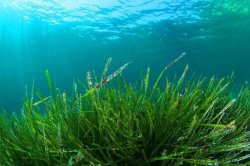
Contact usUnited CaribbeanChakula kwa Maisha
Organic SuperFoodsOrganic SuperFruitsLishe Mbadala ya WanyamaMtaala wa Kiswahili
Chakula kwa MaishaMoringa (Mlonge)A.B.C.D |
home>>mlonge
>> chakula kwa maisha >>spirulina Chakula kwa Maisha - Spirulina
Spirulina grows naturally in mineral-rich alkaline lakes which can be found on every continent, often near volcanoes. The largest concentrations of spirulina today can be found at Lake Texcoco in Mexico, around Lake Chad in Central Africa and along the Great Rift Valley in East Africa. Spirulina is called a super food because its nutrient content is more potent than any other food. Many of the essential nutrients needed by our bodies are concentrated in spirulina. It is comprised of at least 60% all-vegetable protein, essential vitamins and phytonutrients such as the rare essential fatty acid GLA, sulfolipids, glycolipids and polysaccharides. 60% easy-to-digest complete vegetable protein without the fat and cholesterol of meat. Spirulina is a low-fat, low-calorie, cholesterol-free source of easily-digestible vegetable protein containing all the essential amino acids that cannot be produced by the body but are needed to synthesize the non-essential amino acids. Spirulina has no cellulose in its cell walls and is therefore easily digested and assimilated. Natural Beta Carotene (provitamin A) Gamma-Linolenic acid (GLA) The best natural iron supplement High in Vitamin B-12 and B Complex. Phytonutrients Phycocyanin is the most important pigment in Spirulina; it has both magnesium and iron in its molecular formation and therefore may be the origin of life, common to both plants and animals. Studies show it affects the stem cells found in bone marrow. Stem cells are essential to both white blood cells that make up the cellular immune system and red blood cells that oxygenate the body. Chlorophyll is known as a cleansing and detoxifying phytonutrient. Spirulina contains 1% chlorophyll, among the highest levels found in nature, and the highest chlorophyll-A level. Carotenoids are a mixed carotenoid complex functioning at different sites in the body and working synergistically to enhance antioxidant protection. ABCD is researching the possibility of growing Spirulina in the many lakes that will be created as we excavate the sand in our land sand project.
|
| GROW AND GO CURRICULUM
SOWING SEEDS OF SUCCESS - MORINGA CURRICULUM SUPER FRUIT CURRICULUM NEW LIFE CURRICULUM
|
| Copyright © 2024 www.UnitedCaribbean.com. All rights reserved. Disclaimer Click to Contact us |









































